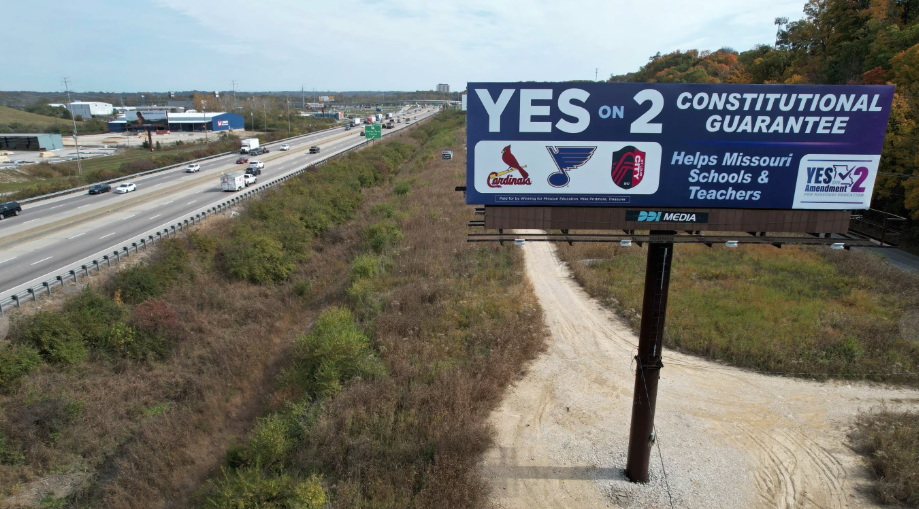Online betting gambling Missouri vote
Missouri voters recently made a significant decision by passing Amendment 2, legalizing sports betting in the state. This move positions Missouri as the 39th state in the U.S. to allow some form of legal gambling. With the approval, online betting and gambling are set to become major players in the state’s economy.
In this article, we’ll break down the key details of Amendment 2, its implications, and what residents and stakeholders can expect as Missouri joins the growing list of states embracing legalized gambling.
A Brief History of Sports Betting Legalization
Until 2018, sports betting was primarily limited to Nevada, as federal laws restricted its practice across the U.S. However, the Supreme Court’s decision in Murphy v. NCAA opened the doors for states to regulate their own gambling markets. According to the American Gaming Association, this decision spurred a wave of legislative changes across the country.
Missouri has been relatively cautious in embracing gambling expansion. Neighboring states like Illinois and Kansas legalized sports betting earlier, creating competitive pressure for Missouri to follow suit. The eventual passage of Amendment 2 underscores the state’s desire to retain revenue that might otherwise go across state lines.
Key Provisions of Amendment 2
Amendment 2 introduces a robust framework for online betting and sports gambling. Key elements include:
- Regulation by the Missouri Gaming Commission: Licensing, taxation, and operational guidelines fall under this body’s jurisdiction. Visit the Missouri Gaming Commission’s website for details on regulatory compliance.
- Wagering Tax Revenue: A 10% tax on wagering revenue is earmarked to fund public education and problem gambling prevention programs.
- Betting Venues and Operators: The law allows betting through mobile apps, licensed casinos, and professional sports venues. Major operators like DraftKings and FanDuel are expected to lead the market.
Economic and Social Impact of Legalized Gambling
The economic potential of legal gambling in Missouri is substantial. Initial estimates project millions of dollars in annual revenue, which will contribute to:
- Funding public education initiatives.
- Supporting the Compulsive Gambling Prevention Fund.
- Covering operational costs for the Missouri Gaming Commission.
However, concerns about problem gambling and ethical considerations have also been raised. Resources like the National Council on Problem Gambling are essential for addressing these issues.
What Missourians Can Expect
The legalization process is already underway, but it will take time before residents can place their first legal bets. Here’s a breakdown of what to expect:
- Timeline for Implementation: The Missouri Gaming Commission is tasked with ensuring that betting operations commence no later than December 1, 2025.
- Eligible Operators: In addition to DraftKings and FanDuel, platforms like BetMGM and Caesars Sportsbook are likely contenders for licenses.
- Access Points: Residents can place bets online, on mobile apps, or at physical locations like casinos and sports stadiums.
Comparing Missouri with Neighboring States
Missouri’s gambling framework differs from its neighbors in key ways. For instance:
- Illinois and Kansas both allow sports betting, but Missouri’s tax rates and revenue allocation methods are unique.
- Unlike some states, Missouri will dedicate a portion of its gambling revenue specifically to education funding and problem gambling prevention.
Addressing Challenges and Concerns
While the economic benefits are evident, legalized gambling comes with challenges:
- Problem Gambling Risks: Increased access to betting can lead to higher rates of addiction. Education and prevention initiatives are vital.
- Ethical Questions: Critics argue that gambling disproportionately affects lower-income individuals, creating a potential social imbalance.
- Operational Hurdles: Ensuring regulatory compliance and preventing illegal betting activities will be a priority for authorities.
FAQs About Online Betting in Missouri
Here are answers to some of the most common questions Missourians have about the new legislation:
- When will betting be operational?
Operations are expected to begin by December 2025. - Where can I place bets?
Betting will be available online, on mobile platforms, and at licensed physical locations. - What sports are eligible for betting?
A wide range of sports, including professional and college-level events, will be covered. - What happens to the tax revenue?
Revenue will fund public education, regulatory costs, and problem gambling programs. - Is online betting safe?
Licensed operators are required to comply with strict security and regulatory standards.
Conclusion
The passage of Amendment 2 is a landmark moment for Missouri, ushering in a new era of legalized gambling. While the benefits—economic growth, increased funding for education, and competitive parity—are clear, the state must also navigate challenges like problem gambling responsibly.
As Missouri prepares for the launch of its online betting and gambling market, residents can look forward to new opportunities and responsibilities. The journey to legalization is just the beginning of a broader conversation about the role of gambling in the state’s future.







